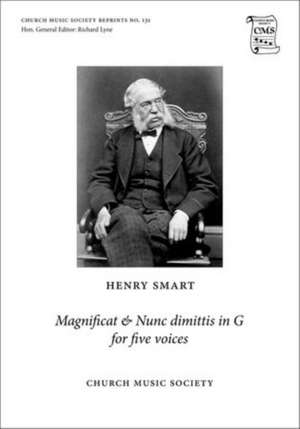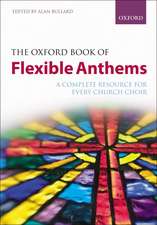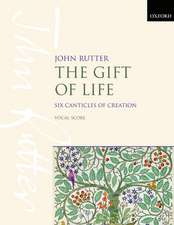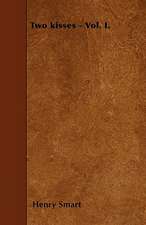Magnificat and Nunc dimittis in G: for five voices: Church Music Society publications
Compozitor Henry Smart Editat de Peter Horton, Richard Lyneen Limba Engleză Sheet music – 3 oct 2013
Din seria Church Music Society publications
-
 Preț: 35.31 lei
Preț: 35.31 lei -
 Preț: 28.36 lei
Preț: 28.36 lei -
 Preț: 28.36 lei
Preț: 28.36 lei -
 Preț: 28.36 lei
Preț: 28.36 lei -
 Preț: 32.48 lei
Preț: 32.48 lei -
 Preț: 26.06 lei
Preț: 26.06 lei -
 Preț: 26.06 lei
Preț: 26.06 lei -
 Preț: 35.28 lei
Preț: 35.28 lei -
 Preț: 39.68 lei
Preț: 39.68 lei -
 Preț: 26.06 lei
Preț: 26.06 lei -
 Preț: 169.46 lei
Preț: 169.46 lei -
 Preț: 32.48 lei
Preț: 32.48 lei -
 Preț: 26.06 lei
Preț: 26.06 lei -
 Preț: 26.06 lei
Preț: 26.06 lei -
 Preț: 35.36 lei
Preț: 35.36 lei -
 Preț: 28.36 lei
Preț: 28.36 lei -
 Preț: 32.48 lei
Preț: 32.48 lei -
 Preț: 32.48 lei
Preț: 32.48 lei -
 Preț: 32.48 lei
Preț: 32.48 lei -
 Preț: 31.54 lei
Preț: 31.54 lei -
 Preț: 28.36 lei
Preț: 28.36 lei -
 Preț: 28.36 lei
Preț: 28.36 lei -
 Preț: 35.56 lei
Preț: 35.56 lei -
 Preț: 39.68 lei
Preț: 39.68 lei -
 Preț: 31.46 lei
Preț: 31.46 lei -
 Preț: 32.48 lei
Preț: 32.48 lei -
 Preț: 31.38 lei
Preț: 31.38 lei -
 Preț: 28.36 lei
Preț: 28.36 lei -
 Preț: 36.13 lei
Preț: 36.13 lei -
 Preț: 36.13 lei
Preț: 36.13 lei -
 Preț: 28.36 lei
Preț: 28.36 lei -
 Preț: 28.36 lei
Preț: 28.36 lei -
 Preț: 31.64 lei
Preț: 31.64 lei -
 Preț: 46.49 lei
Preț: 46.49 lei -
 Preț: 26.06 lei
Preț: 26.06 lei -
 Preț: 31.49 lei
Preț: 31.49 lei -
 Preț: 47.33 lei
Preț: 47.33 lei -
 Preț: 31.53 lei
Preț: 31.53 lei -
 Preț: 36.13 lei
Preț: 36.13 lei -
 Preț: 28.36 lei
Preț: 28.36 lei -
 Preț: 21.82 lei
Preț: 21.82 lei -
 Preț: 29.26 lei
Preț: 29.26 lei -
 Preț: 27.90 lei
Preț: 27.90 lei
Preț: 46.94 lei
Nou
Puncte Express: 70
Preț estimativ în valută:
8.98€ • 9.75$ • 7.55£
8.98€ • 9.75$ • 7.55£
Disponibil
Livrare economică 22-28 martie
Preluare comenzi: 021 569.72.76
Specificații
ISBN-13: 9780193953994
ISBN-10: 0193953994
Pagini: 40
Dimensiuni: 175 x 231 x 4 mm
Greutate: 0.09 kg
Ediția:Vocal score
Editura: OUP OXFORD
Colecția OUP Oxford
Seria Church Music Society publications
Locul publicării:OXFORD, United Kingdom
ISBN-10: 0193953994
Pagini: 40
Dimensiuni: 175 x 231 x 4 mm
Greutate: 0.09 kg
Ediția:Vocal score
Editura: OUP OXFORD
Colecția OUP Oxford
Seria Church Music Society publications
Locul publicării:OXFORD, United Kingdom
Recenzii
Perhaps this publication will boost their popularity, for the music is of singular beauty. This is Victorian church music in the best possible sense: it contains grandeur, stateliness, and counterpoint nearly worthy of Brahms, while avoiding the excesses of the era. The harmony is reserved rather than decadent, and the musical effects are natural rather than contrived . . . The Magnificat is expansive and lengthy, full of souring melodies and an attention to architecture that foreshadows Stanford. Both canticles conclude with the same extended Gloria Patri bringing each to a thrilling finale.
Peter Horton's preface makes reference to William Husk's observation that Smart was interesting if unoriginal. That's probably true, but the same could justifiably be said about much music written for the Anglican church. Smart in G evening canticles are just that. It would be overstating the case to claim that Smart in G was an early-Victorian masterpiece, but given the competition (Wesley in E aside) it's as good as it gets.
Peter Horton's preface makes reference to William Husk's observation that Smart was interesting if unoriginal. That's probably true, but the same could justifiably be said about much music written for the Anglican church. Smart in G evening canticles are just that. It would be overstating the case to claim that Smart in G was an early-Victorian masterpiece, but given the competition (Wesley in E aside) it's as good as it gets.
Notă biografică
Henry Smart was born in London, and was the nephew of Sir George Smart, the eminent conductor and Organist of the Chapel Royal. He studied law before turning to a career in music. From 1831-36 he was Organist of Blackburn Parish Church, but returned to London to take up the post of Organist at St Giles-without-Cripplegate. Later he moved to St Luke's, Old Street, and finally in 1864, to St Pancras New Church. For the last fifteen years of his life he was totally blind and dictated his compositions to his daughter. Several of his hymn tunes enjoy popularity today and appear in a number of modern hymn books.










